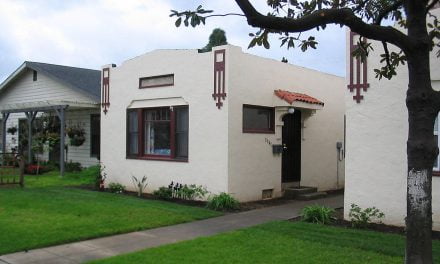The November 2020 election is right around the corner and a measure which could impact real estate is up for grabs on the ballot. Agents and brokers need to know the ins and outs of Proposition 19 (Prop 19) and learn how it could impact them moving forward.
What exactly is Prop 19?
Prop 19 would impact California homebuyers (and their heirs) in two big ways:
- it would eliminate provisions which allow parents to transfer ownership of a home to their children without tax consequences; and
- expand rules allowing California residents age 55 or older to transfer the tax value of their home when they purchase a new one.
In short, Prop 19 would let more homeowners take their already steep tax breaks with them anywhere in the state when they sell their home, even if they’re upsizing. And they would be allowed do this back-to-back-to-back.
Why is Prop 19 on the ballot now? Similar propositions, such as Prop 5 in 2018, have been on the ballot before and failed. Prop 19 is aimed at changing the inequities stemming from Proposition 13 (Prop 13).
Prop 13 caps property taxes at 1% of the purchase price with annual increases of no more than 2%. When property is sold, the tax value is reset to match the sale price. It benefits wealthy property owners disproportionately and places the greatest tax burden on new homebuyers and current renters, those typically least financially able to bear it.
Editor’s Note – The California Association of Realtors (C.A.R.) is one of the sponsors behind this measure. The trade association has long supported legislation that boosts tax incentives for senior homeowners to move them into new homes. Prop 19 is C.A.R.’s second shot at Prop 5, an initiative California voters rejected in 2018 which would have had the same effect.
How would Prop 19 affect tax assessment transfers?
Prop 19 would add and extend certain rights under a measure previously passed in 1986. Proposition 60 (Prop 60) allows property owners age 55 or older one chance to purchase a cheaper home in the same county and transfer the tax value of their former home to their new home.
More specifically, Prop 19 would further extend rights under the previous measure by:
- allowing moves anywhere in the state, meaning homeowners would be able to keep their lower property tax bill when moving to another home;
- allowing the purchase of a more expensive home which would increase property taxes, but to an amount lower than what other homebuyers would be taxed; and
- increasing the number of times a homeowner can use these special rules from one to three.
The measure would apply to persons over 55 years old and those with severe disabilities. Disaster victims would still be allowed only one transfer.
No more free inherited properties
In California, parents and grandparents may transfer primary residential properties to their children or grandchildren without the property’s tax assessment resetting to the market value.
Prop 19 would end the parent-to-child and grandparent-to-grandchild exemption in cases where the child or grandchild does not use the inherited property as their primary residence, but instead uses it as a rental property or second home.
When the inherited property is used as the main residence and is sold for $1 million more than the property’s taxable value, an upward adjustment in assessed value would occur.
Starting February 16, 2023, the taxable value of an inherited principal residential property would be adjusted each year at a rate equal to the change in the California House Price Index.
The reason this provision is part of the measure is because past investigations, including a report by the Los Angeles Times, have found 64% of inherited homes were second residences. The resulting tax break deprived schools, cities and county governments of nearly $300 million in taxes.
The two provisions in Prop 19 would further exacerbate California’s housing crunch. It heightens hurdles for first-time homebuyers who will face older, tax-advantaged buyers in an already tight housing market.
While Prop 19 would boost home sales volume in the short run, it would create more problems than it solves in the long run. Prop 19 only serves to further entrench Prop 13’s inequities.
Stay with first tuesday as we continue to analyze the November election’s potential impact on California real estate.















Wow, Proposition 19 certainly throws a wrench into things. Suddenly, inheritance looks a lot more complicated. I wonder how many families are scrambling now? This whole property tax reevaluation thing feels like a ticking time bomb. It’s like they redefined the rules mid-game. I remember back in college, a landlord tried hiking our rent based on some vague “market value” argument. It felt equally unfair and arbitrary; we almost started a geometry dash style of rent strike to the property manager’s office.
Prop-13 is a good idea to support the senior population. The system is known to be abused, which is not nice.
Is there any time frame to reinvest in real estate for us 55 and older after we sell our home to get the tax benefit.
Has FT done a story on Prop 19 that covers 19 in detail?
Maybe FT will have a BLOG some day, with weekly debates on taxation, etc… but there is really no Absolute. “right and wrong”… It depends on whose ox is being gored.
I bought a 4 unit bld in SF…for $75,000 in 1975… It is now worth more than 2 Million. My total tax bill is around $1,000 a year. If I sold it for $2,000,000.. the new owner will pay $20,000 a year in tax…. We can debate that forever.
The tax rules still more favor the “property class” than the renter class… Is life here better, for it? Debatable.
What about those of us who inherited our parents’ home years ago under the exemptions of Prop. 13 and have used those houses for years a as a second home? Will they be reassessed under Prop. 19?
For what ever reason, of which I can’t fathom, a real estate trade publication implicitly promotes higher real estate taxes. Which is what Prop. 19 ultimately does as so thoughtfully put forward by the first two comments above. VOTE NO ON PROP. 19. In most cases, when in doubt vote no on a proposition.
The reason is simple. First Tuesday has been infiltrated with leftists and they push leftist agendas. Note for (another) example is their support for the “densification” of neighborhoods.
Uhhhh…David are you daft? Are you so angry in blame mode you’re spitting contempt at First Tuesday?
Really?!?!
You should re-read Emily Kordy’s editorial. While the piece could have been written more clearly, Ms Kordy was clearly presenting an analysis of Prop-19.
What’s your analysis?
I’d like to hear your intelligent examination of the Proposition. You may even find something you hadn’t thought before.
1. I was responding specifically to Ben’s confusion about why First Tuesday would support property tax increases. I stand by that comment as supported by my reference to the support for neighborhood “densification” by First Tuesday, a leftist position.
2. If you were looking for commentary about Prop 19 as related to the article, see my comment on October 21 time of 3:02 P.M.
3. My comment is based on a supportable fact. The only one who is daft, angry, and spitting contempt is…you.
California is notorious for expanding tax policy and increasing taxes. Whatever you believe Prop. 19 is it definitely is the first step to eliminating Prop 13.
No one would ever vote to repeal Prop. 13 but if you chisel away at it a little bit at a time Californians will eventually allow it. Prop 19 may even have some benefits but, of course, that’s how they get voters. The Prop 13 inequity comments are also another way of creating division. It’s how Americans get passionate. Jealousy and a sense of injustice creates policies that in turn are inequity, just with a different victim. If you doubt what I say, let’s talk in 1o years. I’ve been involved in real estate and closely watched policies affecting it since 1979. This is only about increased tax revenue at the expense of others who someone has determined can afford it or is getting something others don’t. Vote NO on 19 before we’re at the bottom of the slope.
Jeff,
I concur with your above comment. I started selling residential real estate in the mid sixties. I spoke with older people that had to sell their homes because their property taxes were going up substantially each year and were approaching 2.5% or more of current market value. This situation was unbearable for them thus Prop 13 was finally passed by the voters in 1978 through Howard Jarvis’ relentless efforts.
It’s nice there is a Prop-13 to help the older community. It’s not nice that the system is known to be mis-used, and thus limiting tax increases to a fixed arbitrary figure (2%), instead to a real-world index like the California House Price Index
Most of the arguments presented here have to do with “the inequities of proposition 13”. Prop 13 is not perfect by any means, but then few tax laws that don’t produce inequities, so I don’t see that as an argument. In fact, I suspect that all the stuff about allowing people to take their prop 13 advantage with them under various circumstances is more the bait and not the substance of the proposal. It’s the “No more free inheritances” part that is the real target. (The horror that parents wish to transfer their property to their children or grandchildren MUST be stopped!) And then there is that $1 million dollar threshold that allows taxes to be reassessed part. It sounds like a lot, especially to a non homeowner, but the fact is more and more middle class homes reach that limit and it won’t be long before most will. So essentially this expands the death tax under the guise of expanding prop 13 protections to a sympathetic group. I think I will be voting against this but not for anything to do with prop 13 inequities.
Emily, Please clarify what vote you recommend on Prop 19. I see all the reasoning but do not see a conclusion. thanks, Berni Bernstein